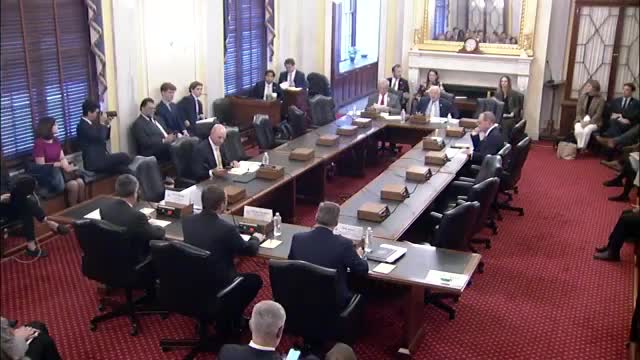Helsinki Commission hearing urges firmer deterrence on NATO’s eastern flank
Get AI-powered insights, summaries, and transcripts
Subscribe
Summary
At a U.S. Helsinki Commission hearing, Estonia’s foreign minister and two U.S. security experts warned of a sustained Russian ‘shadow war’ including airspace violations, sabotage and information operations and recommended stronger allied posture, targeted sanctions and steps to raise Moscow’s costs.
WASHINGTON — Lawmakers and security experts at a hearing of the Commission on Security and Cooperation in Europe (the U.S. Helsinki Commission) on Friday warned that recent Russian incursions and a broader campaign of sabotage and information operations amount to a coordinated effort to probe and weaken NATO’s eastern flank.
Sen. Roger Wicker, the panel’s presiding officer, opened the session by cataloging recent violations and warning that deterrence depends on "effective and decisive responses." Wicker cited recent U.S. moves — including a Pentagon plan to reduce rotational forces in Romania — as steps that could weaken allied credibility and stressed pending legislation, the Eastern Flank Strategic Partnership Act, aimed at prioritizing assistance to frontline allies.
Margus Sakhna, identified in the transcript as Estonia’s minister of foreign affairs, described a string of incidents he said demonstrated a sustained hybrid campaign. He told commissioners that on September 19 Russian MiG‑31 fighter jets entered Estonian airspace for 12 minutes, penetrating about six miles and flying a roughly 60‑mile track, and said similar incursions, sabotage, GPS jamming that disrupted Finnair flights and the unilateral removal of Narva River buoys are part of a pattern that "knows no border or limits." He said Estonia will continue to increase defense spending (the transcript cites a projected 5.4% of GDP figure) and called for unified allied responses.
Seth Jones, a security analyst introduced in the hearing as a Center for Strategic and International Studies official, summarized data he said shows a rapid rise in clandestine and kinetic activity in Europe. "Between 2022 and 2023, the number of Russian sabotage and subversive acts in Europe quadrupled…and then tripled again between 2023 and 2024," Jones said in his testimony. He recommended preserving and potentially expanding the U.S. force posture in Europe, reconsidering rules of engagement for Baltic air policing and pursuing targeted measures against the so‑called "shadow fleet" that he said helps Russia move oil and evade sanctions.
Peter Ruh of the Hudson Institute told the commission Russia is waging comprehensive political warfare that mixes cyberattacks, information operations, sabotage and conventional threats. "Russia is undertaking a comprehensive campaign of political warfare designed to weaken the West," he said, urging allies to raise the economic and operational costs of continued violations.
During questioning, members pressed witnesses about operational responses, the utility of expanded sanctions and whether NATO’s 1997 Founding Act remains relevant. Several members raised the possibility of pre‑delegated authority to engage hostile unmanned aerial vehicles; Representative Jake Elzey told the panel he supports the view that drones violating allied airspace could be shot down. Witnesses cautioned against rash actions while urging political and military measures that would change Moscow’s cost‑benefit calculus.
Lawmakers also discussed the humanitarian and political consequences of the war in Ukraine, including allegations the transcript links to the abduction of children; witnesses said those issues have increased public attention in the United States and Europe and can be an additional lever for pressure. The witnesses and some members urged expanded energy and logistical cooperation in the Black Sea region and cited ongoing U.S. support—both military and economic—as central to allied deterrence.
The commission did not take a vote or adopt formal policy at the hearing. The chair closed the session after brief concluding remarks and thanked the witnesses, who included officials from Estonia and two U.S. policy institutes. The testimony and exchanges underscored bipartisan concern in Washington about both conventional and irregular threats on NATO’s eastern flank and spotlighted sanctions, force posture and maritime interdiction among the tools under consideration.
